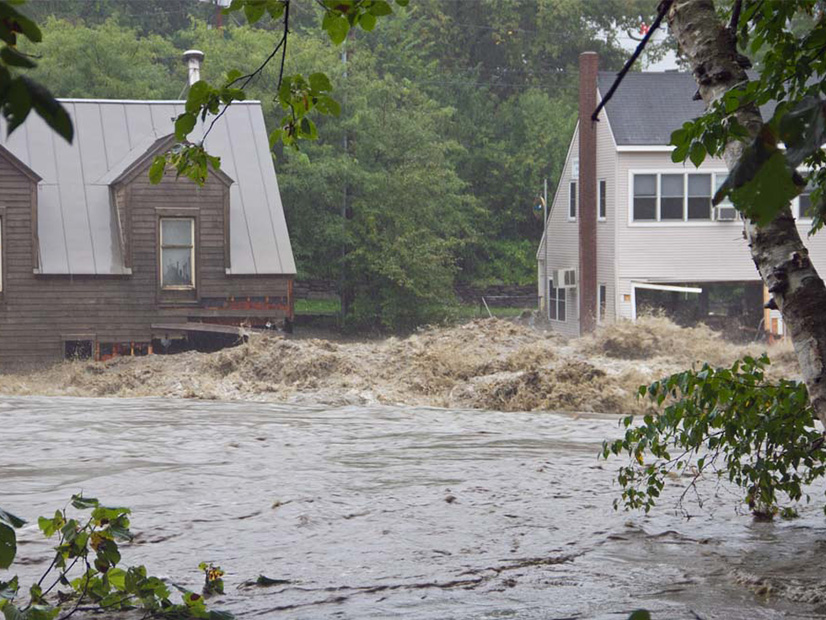
When the Vermont General Assembly reconvenes its 2021-2022 session in January, Sen. Kesha Ram Hinsdale will continue to push for passage of a state environmental justice policy bill she introduced in the spring.
“We cannot advance the proposals that will come out of the [state’s] Climate Action Plan without having an environmental justice policy framework that has distributive justice, procedural justice and other forms of justice built into it,” Hinsdale said Wednesday during the Energy Action Network’s annual summit.
Hinsdale first introduced an environmental justice bill in Vermont 14 years ago, but the state has not codified an official policy on the issue yet. The state’s 2020 Global Warming Solutions Act (GWSA), which stood up the Vermont Climate Council and tasked it with creating a climate plan, calls for the plan to benefit all residents equitably.
If passed, the new bill (S. 148) would direct state agencies to develop a state mapping tool to measure environmental justice impacts at the local level. The bill, Hinsdale said, is similar to her 2007 bill, but the tools available to the state and legislators have changed for the better.
“The [U.S.] EPA now has a major focus on environmental and climate justice and resilience, and that’s where resources will be funneled,” she said. “EPA told [Vermont leadership] in 2015 that we’re behind in not having an environmental justice policy framework on the books.”
The agency’s environmental justice screening tool, she added, now includes flooding data, which will be helpful for Vermont’s understanding of distressed and environmentally impacted communities. When Tropical Storm Irene hit Vermont 10 years ago, mobile home park residents made up 8% of the state population but 40% of those affected by flooding.
The bill would also create an Advisory Council on Environmental Justice within the Vermont Agency of Natural Resources (ANR), which is also tasked with implementing strategies that will be adopted in the pending Climate Action Plan.
“While I’m sad that we’re not in a different place after 14 years trying to advance environmental justice policy in the state, we have the ANR, Department of Health, Agency of Transportation and other partners at the table to really look at how we advance a meaningful environmental justice policy now,” Hinsdale said.
The legislature referred the bill to the Senate Natural Resources and Energy Committee in April.
Clean Heat
After the General Assembly’s break, Sen. Andrew Perchlik says he will be looking for support for a bill (S. 146) he introduced in April to ban new fossil fuel heating systems in Vermont’s state buildings.
The bill is a “no-brainer,” Perchlik said during the summit.
“We can’t meet our 2030 [emissions] goal, which is in nine years, by installing systems that are going to be designed to burn fossil fuels for 20 years,” he said.
The GWSA requires Vermont to reduce greenhouse gas emissions by 40% below 1990 levels by 2030.
Perchlik said the bill applies to structures under the control of the Department of Buildings and General Services as well as the Department of Forests, Parks and Recreation and the Agency of Transportation. Some state representatives, he added, don’t believe that the legislation is necessary.
“The bill is not unreasonable,” he said. “It acknowledges that there might be times where you have to accept the fossil-fuel system, so it’s not an unbending requirement.”
Upon first reading, the legislature referred the bill to the Senate Institutions Committee.
Speaking during the summit, House Energy and Technology Committee Chair Tim Briglin said his committee is watching the ongoing deliberations in the Vermont Climate Council and the policy ideas “that are bubbling to the surface.”
“One policy that I’m particularly focused on individually is the Clean Heat Standard” (CHS), he said, noting that implementing the standard would not be a “simple policy change.”
Like Vermont’s Renewable Energy Standard, he said, a CHS could be “transformative” for the thermal sector.
The council’s Cross-sector Mitigation Subcommittee recommended in July that the full council adopt a CHS as part of the state’s climate plan due Dec. 1. As proposed by the subcommittee, the CHS would be similar to a renewable standard but apply to fossil-fuel heating providers in Vermont. (See VT Climate Council Puts Clean Heat Standard on the Table.)


